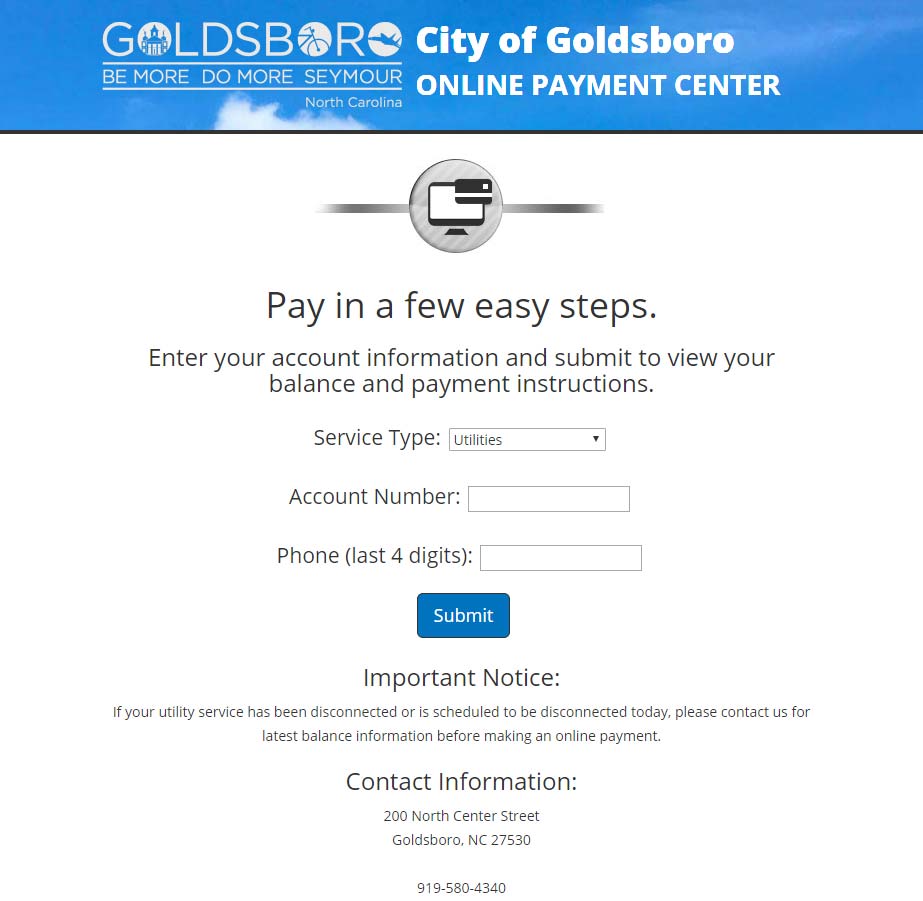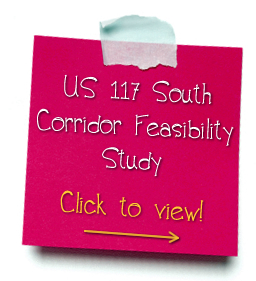Goldsboro MPO
Goldsboro is designated by the Bureau of Census as an urbanized area. An area receives this designation when its urban area population reaches 50,000. The Federal Highway Act of 1962 requires that a continuing, comprehensive, cooperative (3-C) planning process be carried out for all urbanized areas in order to qualify for federal transportation funds.
North Carolina has 18 MPO’s. They are:
Asheville
Burlington
Charlotte
Durham
Fayetteville
Gastonia
Goldsboro
Greensboro
Greenville
Hickory
High Point
Jacksonville
Kannapolis
New Bern
Raleigh
RockyMount
Wilmington
Winston-Salem
Recent Completed Projects
The Goldsboro Metropolitan Planning Organization recently completed its transportation plan and its Bicycle, Pedestrian and Greenway Plan.
Federal law requires that the transportation planning process be carried out locally under the sponsorship of the Metropolitan Planning Organization (MPO). A Memorandum of Understanding (MOU), signed by all participating local governing boards as well as NCDOT and the Federal Highway Administration (FHWA) establishes the specific framework for how the MPO operates.
In North Carolina, each urban areas, MPO is defined as an umbrella organization which includes all member local governments, USDOT, NCDOT and other stakeholders. The MPO’s administrative structure includes a Lead Planning Agency (LPA), a Technical Coordinating Committee (TCC) and a Transportation Advisory Committee (TAC).
The members of the Goldsboro Urban Area include the City of Goldsboro, the Village of Walnut Creek and Wayne County. The City of Goldsboro serves as the lead planning agency for the MPO through staff support including development of draft documents, meeting materials and scheduling, administering the distribution of federal transportation planning (PL) funds and carrying out the directives of the TAC and TCC.
The Transportation Advisory Committee (TAC) –
is the governing body for the MPO. The TAC’s membership includes elected officials representing and appointed by each local government, the area’s representative on the North Carolina Board of Transportation, an advisory non-voting member representing the Federal Highway Administration, and other members as may be authorized in the MOU. The TAC provides policy direction for the planning process, facilities communication and coordination between the member jurisdictions and guides the development of a coordinated, multi-modal transportation program for the planning area. The TAC directs the “3-C” process through its annual review and approval of the MPO’s Planning Work Program (PWP) and the MPO’s Local Transportation Improvement Program (LTIP). The TAC is also responsible for serving as a forum for cooperative transportation planning decision-making for the MPO and each member is responsible for keeping the individual policy boards informed of the status and requirements of the transportation planning process.
The Technical Coordinating Committee (TCC) –
is composed of staff representatives of the various member governments, NCDOT, FHWA and other stakeholders. The TCC has the responsibility of supervising and coordinating the comprehensive transportation planning process and for making recommendations to the TAC and respective local and state agencies pertaining to that process.
2045 Goldsboro Metropolitan Transportation Plan (MTP) Update
![]()
The 2045 Goldsboro Metropolitan Transportation Plan (MTP) Update and Comprehensive Transportation Plan (CTP) addresses expected growth in the City of Goldsboro, the Village of Walnut Creek, the Town of Pikeville and surrounding areas of Wayne County. The plan focuses on the continued development of a truly multimodal transportation plan to help the city continue to grow while preserving the area’s appeal and character.
As a central element of daily life and something that affects everyone, transportation represents a critical component of an area’s social and man-made infrastructure. A region’s Metropolitan Transportation Plan is the community’s comprehensive guide to developing a regional transportation system that accommodates not only the current mobility needs of the area’s residents, but also looks to the future to anticipate where new needs will arise.
The MTP for a metropolitan area is a financially constrained plan, meaning it identifies projects and programs that can reasonably be implemented within the years of the plan. In response to federal mandates and the desires of local residents, this 2040 Update addresses all modes of transport including automobile, bicycle, pedestrian, transit, air, rail and freight movements.






